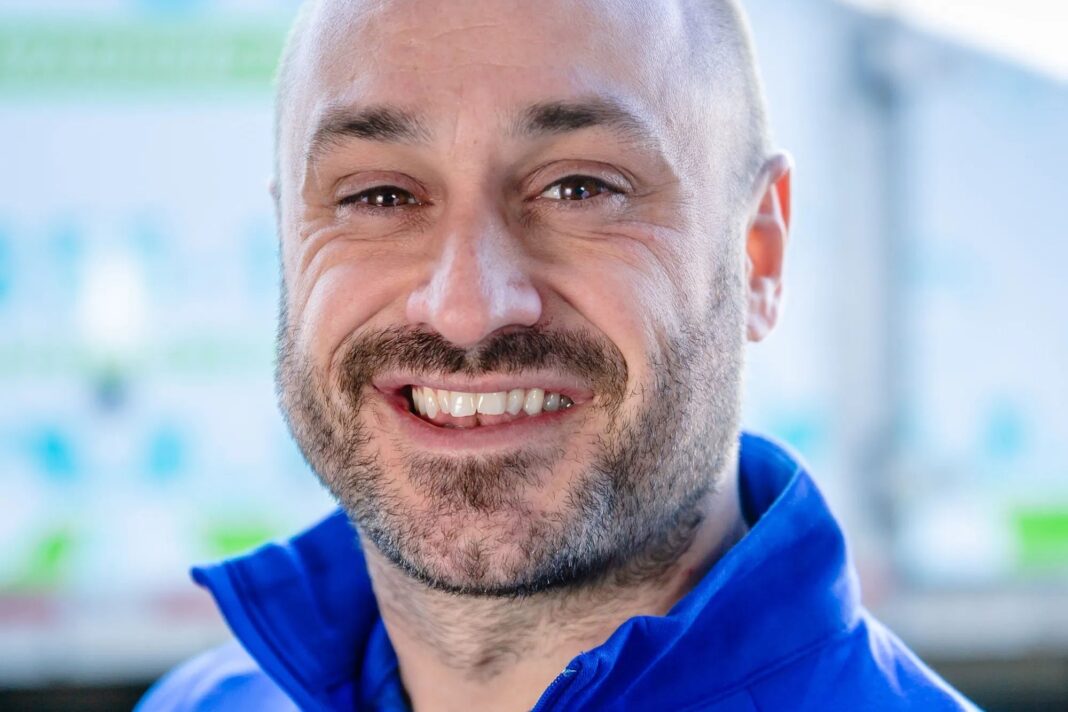Aaron Harper of power washing firm Rolling Suds isn’t your typical CEO. A plain-spoken, no-nonsense leader, Harper is building the foundation of the rapidly expanding brand while simultaneously embarking on a crusade for franchise industry self-regulation based on company responsibility.
“I’m talking about we, as an industry, deciding how to be responsible,” Harper says. “We say these are the problems as we see it currently, how do we fix those problems moving forward? And then how do we standardize the solution and who needs to get involved to enforce these?”
Chem-Dry and The Patch Boys
Harper’s experience in the franchise sector began in 2017, when he started as a senior franchise development director at Belfor Brands — where he worked on the Chem-Dry and The Patch Boys brands — following stints at major companies such as AT&T. Harper quickly showed a knack for steering brands toward unprecedented growth, playing a pivotal role in expanding Chem-Dry to 900 franchises. Similarly, his involvement with The Patch Boys saw it grow from humble beginnings to a powerhouse with 100 locations nationwide. (It has since grown to more than 300.)
Under Harper’s guidance, both brands became case studies in scaling effectively while maintaining a supportive network for franchisees. His strategy involved directly engaging with franchise owners and building robust systems to support their growth. This hands-on approach not only led to the brands’ expansions but also cemented Harper’s reputation in the franchise industry.
Rolling Suds
In 2023, Harper joined Rolling Suds, a family-owned power-washing business, as CEO. Under his leadership, Rolling Suds has recently passed 100 locations, with more in the planning stages. This scaled expansion, coupled with Harper’s commitment to responsible franchising, underscores the potential of ethical business practices in driving sustainable growth.
“I personally handle all the franchise development,” Harper says. “I have turned away 51 people who wanted to become franchisees and were not right for our system. It doesn’t matter that they want to write me a $200,000 check. If they’re in my system and they mess up, not only am I going to have to spend more money getting them out, but the amount of damage they’re going to do culturally isn’t even worth it.”
Harper’s philosophy permeates Rolling Suds. “We don’t allow franchisees to scale too quickly,” says Prue Lotharius, VP of marketing. “That’s not what we want them to focus on.” Lotharuis should know. She started out as a franchisee with Rolling Suds and believed so much in Harper’s vision that she made a drastic move in 2023, selling her franchise to join the Rolling Suds corporate team.
Related: From Coding to Creole Cooking — Here Are 5 Inspiring Success Stories of Black-Owned Businesses
Responsible franchising
In his years of experience, Harper has seen the best and the worst the franchise business model has to offer. But instead of shrugging off the bad and capitalizing on the good, he decided he needed to speak out. “Responsible franchising starts in the franchise development process, and then it continues in the operation side of things,” he says. “Irresponsible franchising is telling people this is going to be easy, they’re not going to have to work, that they can hire someone to run their business for them, and they can make a ton of money. Really, Ponzi scheme-level stuff.”
This dishonesty, Harper says, creates a situation where franchise brands grow too fast and are built on shaky foundations. He uses a hypothetical example of a franchisor and FSO pushing to grow to 150 units in a year. “The franchisor should have never been a franchisor in the first place,” he explains, “but now they have 150 units sold, and the people who bought the units think that they can run the business part-time and never left their jobs. The franchisor can’t support the franchisees, and the franchisees aren’t even engaged. Then a private equity firm swoops in and pays pennies on the dollar for the brand.”
Related: Want to Become a Franchisee? Run Through This Checklist First.
Growing movement
Harper is driven by a vision to correct these systemic flaws and make responsible franchising an industry-wide reality. Central to his strategy is education — there is a knowledge gap that perpetuates unethical franchising, and Harper dedicates himself to sharing insights and best practices through social media and various speaking engagements. “I post content daily,” Harper says. “Franchisors reach out to me [every] week, so I have already built an audience in the franchise community.”
Harper says his X following increased seven-fold since he began posting daily about responsible franchising in 2023.
Related: Is Franchising Right For You? Ask Yourself These 9 Questions to Find Out.
The future
Rolling Suds’ expansion reflects a commitment not just to growth but to growth done right. Harper’s leadership emphasizes the necessity of a responsible expansion strategy, ensuring that each new location aligns with the core values of community, integrity and quality.
Harper’s journey has been a blueprint for success that balances steady growth with ethical practices. As the franchise industry continues to evolve, his push for responsible franchising becomes more critical in guiding future entrepreneurs toward sustainable and ethical business models. “This has to be a topic of discussion of enough thought leaders to come up with solutions that we propose to the whole industry,” he says. “No one wants this to continue for decades to come.”
